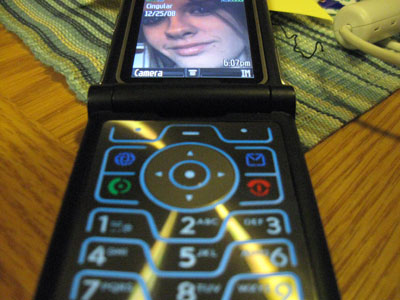All Nonfiction
- Bullying
- Books
- Academic
- Author Interviews
- Celebrity interviews
- College Articles
- College Essays
- Educator of the Year
- Heroes
- Interviews
- Memoir
- Personal Experience
- Sports
- Travel & Culture
All Opinions
- Bullying
- Current Events / Politics
- Discrimination
- Drugs / Alcohol / Smoking
- Entertainment / Celebrities
- Environment
- Love / Relationships
- Movies / Music / TV
- Pop Culture / Trends
- School / College
- Social Issues / Civics
- Spirituality / Religion
- Sports / Hobbies
All Hot Topics
- Bullying
- Community Service
- Environment
- Health
- Letters to the Editor
- Pride & Prejudice
- What Matters
- Back
Summer Guide
- Program Links
- Program Reviews
- Back
College Guide
- College Links
- College Reviews
- College Essays
- College Articles
- Back
Smartphone Obsession
Amid a steady decline of drug and alcohol use in teens, researchers have been scrambling to uncover the cause of this trend. Some suspect (and hope) it’s due to anti-drug campaigns or the decline of cigarettes as a gateway drug. But another theory has begun to surface. Is a new drug replacing the old ones? Are smartphones taking their place?
For me it’s a typical Saturday night: Alix is busily texting her boyfriend; Ella and Nano are poring over an instagram post; Maureen is watching her favorite youtuber. I’m staring off into space.
Parents, teachers, neuroscientists, psychiatrists, experts in the brain all warn about the dangers of over using cell phones for my generation. Most fourteen years olds like me would say there’s no problem, claiming smartphones are a necessary part of our culture. But when my smartphone broke this fall, I decided not to replace it.
I noticed that using my smartphone took away from so many life experiences. I felt annoyed when my friends or family used their phones when we were together. I hadn’t minded before when my own phone could distract me, but now the screens seemed to be a glaring damper on the time spent with loved ones. I finally felt fully present in every situation. Sure it was uncomfortable at first, not having a clutch to fall back on when I didn’t feel like making conversation. But we shouldn’t be using our devices as the universal conversation- avoider, or as our distraction from the discomfort and sometimes the awkwardness of human interaction. How can we learn to interact when our phones are on hand at all times to prevent ourselves from doing so?
Still, smartphones can sometimes be wonderful tools. They can help adults with their work and kids with their school, and they allow us to take beautiful photos. We can connect with old friends and maintain long-distance relationships. Phones allow us to have an endless amount of information at our fingertips, and can give us directions to whatever destinations we please. But we must consider how every tool smartphones provide us with can also detract from our lives. We shouldn’t forget that we’re missing out on the opportunity to simply ask for directions, or to stop recording a moment and to simply enjoy it.
Walk into a train car in any U.S. city and you’ll see twenty faces staring down at a screen. And it’s not just public spaces that are affected. Smartphones have infiltrated homes and intimate gatherings as well. According to the Pew Research Center, 43% of smartphone owners between the ages of 18 and 29 describe their app usage as continuous. According to ABC News, the average person unlocks their phone 150 times a day. Statistics like these have only validated my experiences. I notice that there’s rarely time spent with my friends when phones aren’t being pulled out.
Not only does smart phone and screen use have an effect on relationships, it can also profoundly shape an individual and the brain, especially in a time when the average age to get a cell phone in the U.S. is 10.3. The American Academy of Pediatrics estimated that the average child spends seven hours a day on screens. And as kids are gaining more access at a younger age, we’re simultaneously uncovering the effects screen time has on a developing brain. Internet Use Disorder was recently added to the Statistical Manual of Mental Health Disorders. On top of this, studies have shown that excessive internet usage can cause increased depression, loneliness, and anxiety in adolescents. Some may say this is extreme, as screens seem to be relatively harmless. A closer look, however, reveals that they’re anything but. Internet usage can change the brain’s patterns of releasing dopamine. This is the same brain chemical that causes addiction to sugar and even cocaine.
So my advice to teens who feel the same way as I do? My decision to go without a phone was definitely extreme, considering our generation. So try ditching your phone for a week. Observe how it affects your relationships, your mood, and your presence. Feel the uncomfort and come out on the other side being more aware of how your phone has affected your life. Notice which online activities you miss, and which ones didn’t have much value to you. You just might end up feeling less stressed, happier, and more connected.
We all need to take a serious look at how our phones affect our lives. We need to figure out how our phones are serving us and how they’re hurting us. Because after all, what is the purpose of a smartphone if we’re not smart enough to use them right?

Similar Articles
JOIN THE DISCUSSION
This article has 0 comments.
